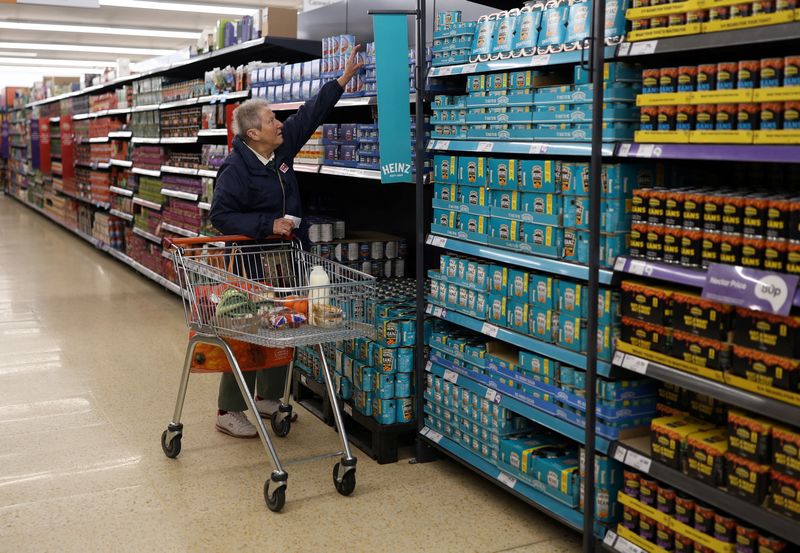By James Davey
COBHAM, England (Reuters) – Britons bruised by a cost of living crisis will not start spending strongly again until the new Labour government sets out its tax and spending plans, and interest rates fall further, the boss of supermarket Sainsbury’s said.
Chief Executive Simon Roberts told Reuters that despite falling inflation, higher wages, and solid employment levels, UK shoppers remain nervous about spending on bigger ticket items.
“Discretionary markets continue to be difficult,” said Roberts, a more than 35-year veteran of the UK retail sector who has run Britain’s second-biggest supermarket chain since 2020.
“Consumers inevitably are wanting to be clearer about what’s going to happen next and for that reason we see a continued caution in discretionary spending,” he said.
Recent surveys have shown UK consumer confidence has plunged in the wake of Prime Minister Keir Starmer’s warnings about the state of the British economy and the likely need for tax increases in an Oct. 30 budget, prompting fears about trading in the run-up to Christmas.
Sainsbury’s has a more than 15% share of Britain’s grocery market, trailing only Tesco (OTC:TSCDY), but a quarter of Sainsbury’s sales are from non-food products versus about 7% for Tesco, making it more vulnerable to a broader downturn.
“We need to see interest rates continue to come down because that directly impacts household spending. I think clarity in the budget, one way or another, is helpful,” Roberts said, on a tour of Sainsbury’s revamped flagship superstore in Cobham, south west of London.
The Cobham store showcases an increased food offer alongside the group’s Argos and Habitat general merchandise businesses and its Tu clothing brand.
Britain’s central bank is expected to cut borrowing costs in November after holding its key interest rate at 5% in September.
Despite the economic uncertainty, Roberts is confident Britons will still splash out on food and drink at Christmas.
“What we’ve seen over the last three or four years through the pandemic and the inflation crisis, Christmas has been a time when people in the end want to be together with their friends and family and loved ones.
“There’s absolutely no complacency at all in our business. We’ve had three strong Christmases and we’re preparing for a fourth one to come.”
He said Sainsbury’s was well placed to benefit from what he saw as the big consumer themes for Christmas – more people dining at home rather than eating out, time-poor consumers preferring one shop for all of their food and general merchandise needs, and a focus on value.
Under Roberts, Sainsbury’s has benefited from a strategy to match discounter Aldi’s prices on over 650 essential items and provide better offers for members of its popular Nectar loyalty scheme, financed by cutting costs. He has stepped up product innovation and moved to improve quality, availability, and customer service. Its shares are up 16% over the last year.
The CEO said it was critical the government came through on its promise to fundamentally reform business rates, noting Sainsbury’s pays almost as much tax on its properties as it makes in operating profit.

